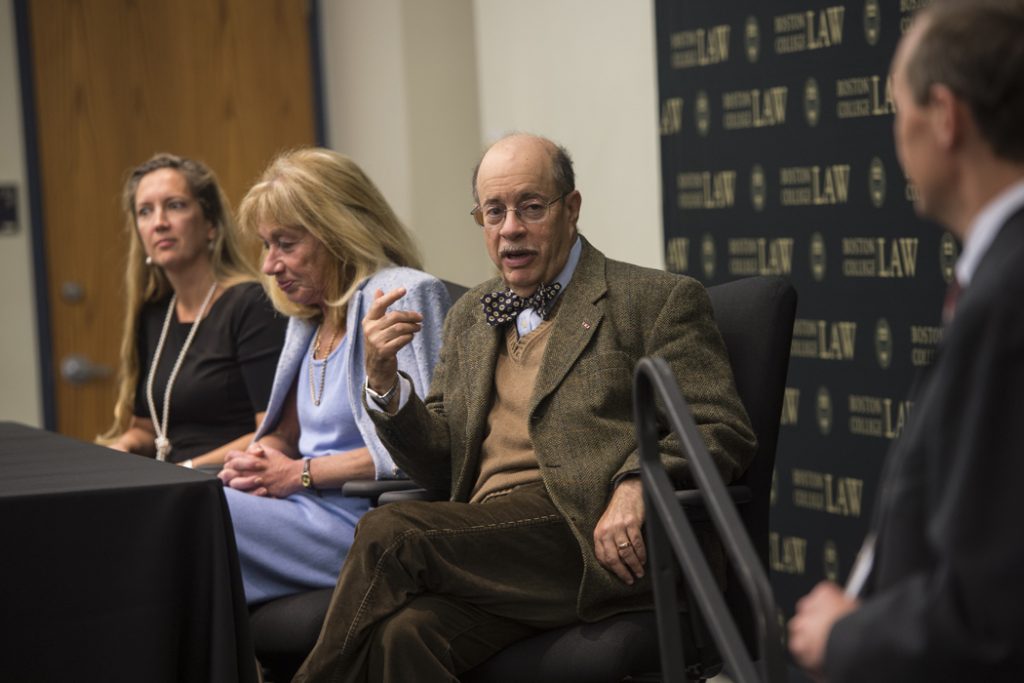On October 6, 2015, a three-judge panel of the Federal Circuit Court of Appeals heard oral arguments at Boston College Law School. The special session was pursuant to 28 U.S.C. § 48, where a court of appeals “may hold special sessions at any place within its circuit as the nature of the business may require, and upon such notice as the court orders.”
“It is a considerable honor to get to host the Federal Circuit as it hears oral arguments on real cases,” says BC Law Associate Professor David Olson, who helped organize the event. “This is a rare opportunity, and we were very pleased to be able to make it happen. While the Federal Circuit has authority to have sittings in places outside its court building, it has not done so in a few years because of budget constraints from sequestration.
“Given that it’s a relatively small court, hears cases one week per month, and only meets outside its courthouse in DC occasionally, it is rare for a law school to get to host the court.”
The cases argued included:
- Enos v. McDonald, Case 15-702 (veteran’s claim)
- Integrated Technology Corp. v. Rudolph Technologies, Inc., Case 14-1820 (patent infringement; attorneys’ fees)
- Vinyl Visions, LLC v. Oehme (patent infringement)
- Clare v. Chrysler Group LLC (patent infringement)
According to Olson, opinions on the cases should be announced in the next few months.
Chief Judge Sharon Prost, and Circuit Judges Kimberly Moore and Evan Wallach answered questions from the students in the audience immediately following oral arguments. Subjects discussed included the process of deciding cases and assigning written opinions, as well as how students can pursue judicial clerkships. The judges also gave the students advice on arguing cases before the court, which included being well prepared and avoiding rhetorical or emotional arguments.


